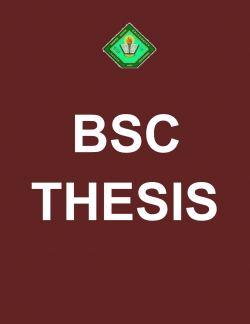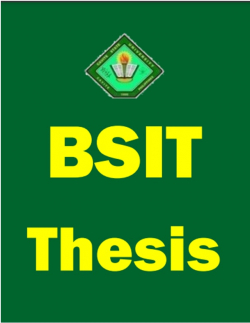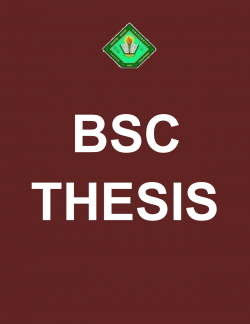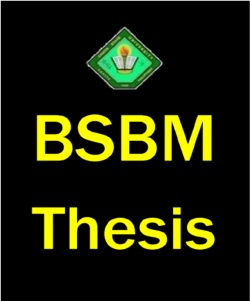A Comparative Study of Solid Waste Management Practices of Comparative in First Cavite Industrial Estate Towards Improvement of Operational Performance.
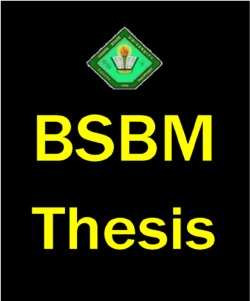
Type
Thesis
Authors
Category
Thesis-BSBM
[ Browse Items ]
Publication Year
2019
Subject
Refuse and refuse disposal — Industrial wastes. Business enterprises — Performance. Industrial waste — Management
Abstract
Waste is a natural part of the life cycle, an unavoidable by-product of most human activities. Dut to the outrageous growth of waste in the Philippines, waste generations have accelerated recently due to the fast pace industrialization, urbanization, growth through there was a law enacted on it compliance is still very poor. The companies in the Philippines were continually rising and subsequently the growth of waste was increasing as well. Solid waste management was highly visible service that involves significant expenditure and challenging operational issues which can affect the business operational performance. This factor led the researchers to conduct the study of a comparative study of solid waste management practices of comparative in first Cavite industrial estate towards improvement of operational performance.
The study was inclined with the study of Kimeu (2015); stated that the business operational performance is necessary to determine company’s growth and determine the extent to which solid waste management practices are implemented in companies which are: cost reduction, efficiency in operation, quality of products and services and flexibility of operation. It sought to answer the following: the profile of the company which are: the size of the company, and years of operation; the current solid waste management practices and its significant difference when group according to size, and years of operation; and the significant relationship of solid waste management practices towards business operational performance.
The study was conducted to explore and compare the current solid waste management practices of companies in First Cavite Industrial Estate (FCIE), its implementations and potential benefits regarding in their business operation performance. The respondents of the study were fourteen (14) electronic companies in First Cavite Industrial Estate (FCIE), the survey questionnaire was filled and answered by the key informants since they are more knowledgeable persons on the information needed for the research. The researchers used purposive sampling technique and utilized the results through Weighted mean, One Way ANOVA test and Pearson r.
The study shows the majority of the electronic companies in FCIE was classified to be a small-sized business with 0-100 employees operating or working in companies and were operating from 3-14 years and 21-26 years. It was also found out that all electronic companies in FCIE were always practicing solid waste management practices, aside from transfer and transport of waste that resulted to be sometimes practice.
Based on the study that has been made, the researchers found out that there is no higher level of difference of solid waste management practices if they fall under the same category of industry and whatever the size or how long the years of operation of the company, solid waste management practices must be impose to every company. Therefore, there was no significant difference in solid waste management practices when group according to size, and years of operation. Through this, the null hypothesis asserted was accepted. Thye study also showed that there is a significant relationship between the generation of waste and efficiency in operation; recycling of waste and efficiency in operation; refusing of waste and efficiency in operation; transfer and transport of waste and efficiency in operation. Also, the result showed that there is a significant relationship between recycling of waste quality of products and services; handling of waste and quality of products and services; and segregation of waste and quality of products and services. In this result, the researchers concluded that the null hypothesis asserted was rejected.
The following recommendations were state in the study; for the companies in First Cavite Industrial Estate (FCIE), for the Government, for the Environmental Advocacy, and for the future researchers.
The study was inclined with the study of Kimeu (2015); stated that the business operational performance is necessary to determine company’s growth and determine the extent to which solid waste management practices are implemented in companies which are: cost reduction, efficiency in operation, quality of products and services and flexibility of operation. It sought to answer the following: the profile of the company which are: the size of the company, and years of operation; the current solid waste management practices and its significant difference when group according to size, and years of operation; and the significant relationship of solid waste management practices towards business operational performance.
The study was conducted to explore and compare the current solid waste management practices of companies in First Cavite Industrial Estate (FCIE), its implementations and potential benefits regarding in their business operation performance. The respondents of the study were fourteen (14) electronic companies in First Cavite Industrial Estate (FCIE), the survey questionnaire was filled and answered by the key informants since they are more knowledgeable persons on the information needed for the research. The researchers used purposive sampling technique and utilized the results through Weighted mean, One Way ANOVA test and Pearson r.
The study shows the majority of the electronic companies in FCIE was classified to be a small-sized business with 0-100 employees operating or working in companies and were operating from 3-14 years and 21-26 years. It was also found out that all electronic companies in FCIE were always practicing solid waste management practices, aside from transfer and transport of waste that resulted to be sometimes practice.
Based on the study that has been made, the researchers found out that there is no higher level of difference of solid waste management practices if they fall under the same category of industry and whatever the size or how long the years of operation of the company, solid waste management practices must be impose to every company. Therefore, there was no significant difference in solid waste management practices when group according to size, and years of operation. Through this, the null hypothesis asserted was accepted. Thye study also showed that there is a significant relationship between the generation of waste and efficiency in operation; recycling of waste and efficiency in operation; refusing of waste and efficiency in operation; transfer and transport of waste and efficiency in operation. Also, the result showed that there is a significant relationship between recycling of waste quality of products and services; handling of waste and quality of products and services; and segregation of waste and quality of products and services. In this result, the researchers concluded that the null hypothesis asserted was rejected.
The following recommendations were state in the study; for the companies in First Cavite Industrial Estate (FCIE), for the Government, for the Environmental Advocacy, and for the future researchers.
Description
This undergraduate thesis investigates and compares the solid waste management practices of electronic companies within the First Cavite Industrial Estate (FCIE) and their impact on operational performance. The study focused on determining company profiles (size and years of operation), examining current solid waste management practices, and analyzing their relationship with key operational performance indicators such as cost reduction, operational efficiency, product and service quality, and flexibility. The study surveyed 14 electronic companies using purposive sampling, with data collected through questionnaires completed by key informants. Statistical tools used included weighted mean, One-Way ANOVA, and Pearson r correlation. Results indicated no significant difference in solid waste management practices when grouped by company size or years of operation but found significant relationships between specific waste management activities (e.g., recycling, segregation, waste transfer) and aspects of operational performance.
Biblio Notes
Bona, M. V., Mantua, Z. E. D., Monton, D. M. O., & Portugal, E. L. R. (2019). A comparative study of solid waste management practices of companies in First Cavite Industrial Estate towards improvement of operational performance (Undergraduate thesis, Bachelor of Science in Business Management, Cavite State University – Bacoor City Campus).
Number of Copies
1
| Library | Accession No | Call No | Copy No | Edition | Location | Availability |
|---|---|---|---|---|---|---|
| CvSU Bacoor City Campus | 4000160 | 1 | Yes |
